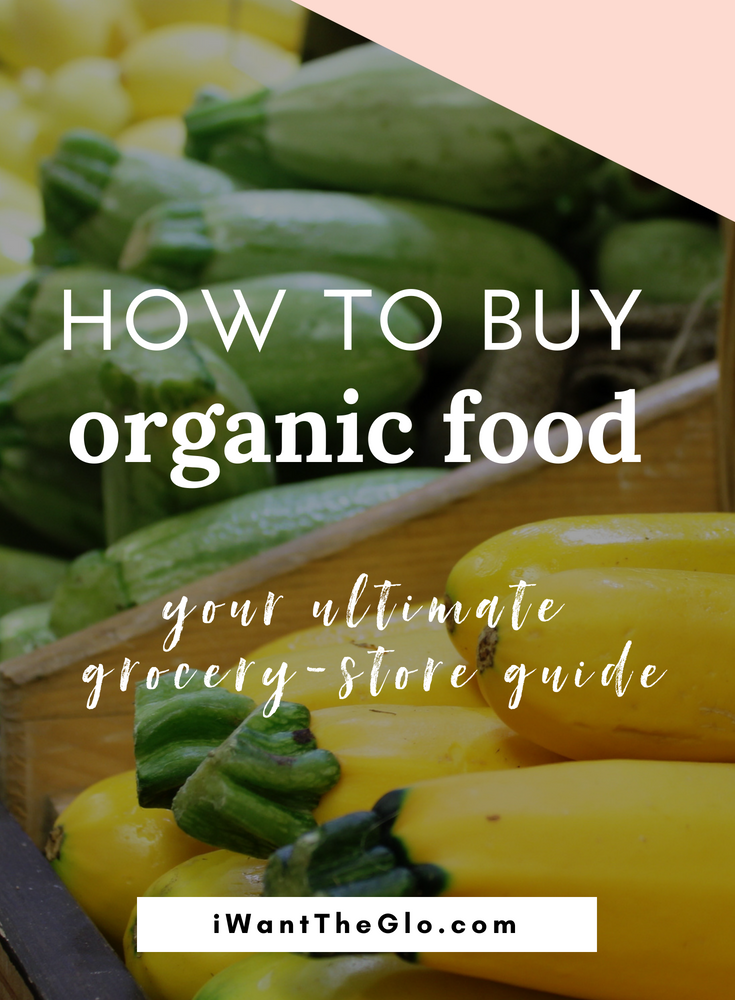The Dirty Dozen
You may have heard of the Dirty Dozen and Clean 15, but you might not know that the lists are updated each year.
The Environmental Working Group (EWG) is a non-profit, non-partisan organization dedicated to protecting human health and the environment. They research what’s in our tap water, the safety of our cosmetics, genetically modified organisms (GMO / GE), and the amounts of pesticides in and on our food, among other things.
The EWG’s Shopper’s Guide to Pesticides in Produce™ (aka Dirty Dozen and Clean 15) is updated each year and ranks pesticide contamination on 48 popular fruits and vegetables. The guide is based on results of more than 35,200 samples tested by the U.S. Department of Agriculture and the Food and Drug Administration.
The top 15 foods with the least pesticides are called the Clean 15, while the 12 foods with the most pesticides are called the Dirty Dozen.
RELATED: Is Organic Food Healthier?
I keep these lists with me every time I head to the grocery store to help me decide which foods are worth splurging for the organic version and which are safe to buy the conventional version.
The Dirty Dozen
Buy these organic whenever possible – Updated 2017
- Strawberries
- Spinach
- Nectarines
- Apples
- Peaches
- Pears
- Cherries
- Grapes
- Celery
- Tomatoes
- Sweet bell peppers
- Potatoes
The Clean 15
These are ok to buy conventional (not organic) – Updated 2017
- Sweet Corn*
- Avocados
- Pineapples
- Cabbage
- Onions
- Sweet peas frozen
- Papayas*
- Asparagus
- Mangos
- Eggplant
- Honeydew Melon
- Kiwi
- Cantaloupe
- Cauliflower
- Grapefruit
* Per the EWG, a small amount of sweet corn, papaya and summer squash sold in the United States is produced from Genetically Engineered (GE) seed stock. Buy organic varieties of these crops if you want to avoid Genetically Engineered produce.
You can read and download the full EWG report and lists here. Here are the highlights of the key findings:
2017 Dirty Dozen Key Findings Summary
- More than 98 percent of samples of strawberries, spinach, peaches, nectarines, cherries and apples tested positive for residue of at least one pesticide.
- A single sample of strawberries showed 20 different pesticides.
- Spinach samples had, on average, twice as much pesticide residue by weight than any other crop.
2017 Clean 15 Key Findings Summary
- Avocados and sweet corn were the cleanest: only 1 percent of samples showed any detectable pesticides.
- More than 80 percent of pineapples, papayas, asparagus, onions and cabbage had no pesticide residues.
- No single fruit sample from the Clean Fifteen tested positive for more than four types of pesticides.
- Multiple pesticide residues are extremely rare on Clean Fifteen vegetables. Only 5 percent of Clean Fifteen vegetable samples had two or more pesticides.
Keep in mind, washing produce doesn’t necessarily get rid of all pesticides and chemicals as it grows into the entire plant, but it can reduce your risk and exposure so be sure to always wash everything throughly.
Organic produce is (unfortunately) more expensive than its conventional counterparts, due in part to the high cost for a grower to be certified as organic. Here's a tip: organic frozen fruits and veggies are often available at a lower price point and they keep for months in the freezer. Costco has a large selection of organic frozen fruits and veggies - I almost always have a Costco-size bag of frozen spinach in my freezer for stir-fry, smoothies, and other treats.





